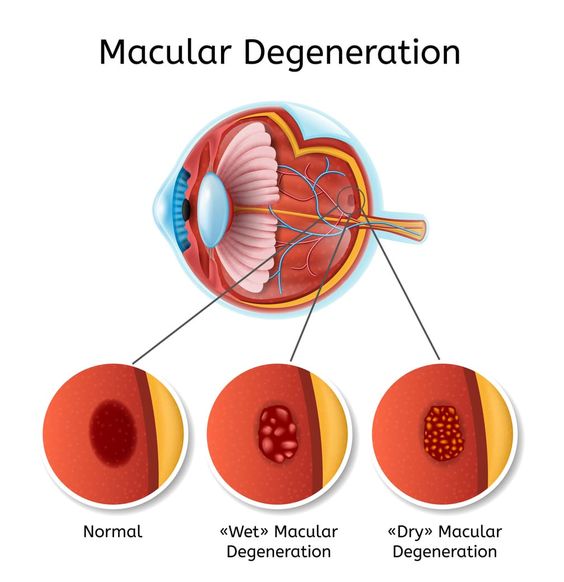Introduction
Macular degeneration, also known as age-related macular degeneration (AMD), is a common eye condition and a leading cause of vision loss among people aged 50 and older. It affects the macula, a small area near the center of the retina responsible for sharp, central vision needed for activities like reading, driving, and recognizing faces.
While macular degeneration doesn't cause complete blindness, it can significantly impair central vision, making it difficult to perform everyday tasks. There are two types: dry AMD, which is more common and progresses slowly, and wet AMD, a more advanced form that develops rapidly and causes more severe vision loss.

This article will delve into the symptoms, diagnosis, and treatment of macular degeneration, providing essential information for anyone seeking to understand this condition.
Understanding Macular Degeneration
The macula is vital for clear central vision. When it deteriorates, it leads to blurry or distorted vision. In dry AMD, the macula thins and drusen, small yellow deposits, form. In wet AMD, abnormal blood vessels leak fluid and blood, causing more rapid and severe damage.
Symptoms
Early stages of macular degeneration may not present noticeable symptoms. However, as the condition progresses, individuals may experience:
- Blurry or distorted central vision
- Difficulty distinguishing faces
- Straight lines appearing wavy
- Dark or empty areas in the center of vision
- Decreased intensity or brightness of colors
Diagnosis and Treatment
Early detection of macular degeneration is crucial for preserving vision. An ophthalmologist can perform a comprehensive eye exam, including:
- Visual acuity test: Measures sharpness of vision.
- Dilated eye exam: Widens pupils to allow for a better view of the retina.
- Amsler grid: A test using a grid pattern to detect distortions in central vision.
- Fluorescein angiography: A procedure to visualize blood vessels in the eye.
Treatment for macular degeneration depends on the type and stage. Dry AMD has no cure, but lifestyle changes like quitting smoking and a healthy diet rich in antioxidants can slow progression. Wet AMD is treated with injections to inhibit blood vessel growth and lasers to destroy abnormal vessels.
Living with Macular Degeneration
While there is no guaranteed way to prevent macular degeneration, individuals can take steps to reduce their risk:
- Maintain a healthy weight and diet
- Quit smoking
- Protect eyes from UV light
- Get regular eye exams, especially after age 50
Living with macular degeneration can be challenging, but resources and support are available. Low vision aids, such as magnifying glasses and brighter lights, can help individuals maintain independence and quality of life.





